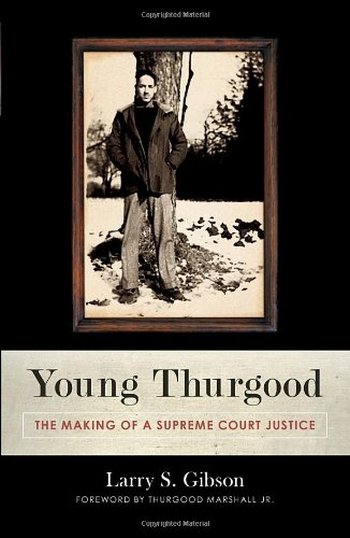|
Thurgood Marshall was the most important American lawyer of the twentieth century. He transformed the nation's legal landscape by challenging the racial segregation that had relegated millions to second-class citizenship. He won twenty-nine of thirty-three cases before the United States Supreme Court, was a federal appeals court judge, served as the US solicitor general, and, for twenty-four years, sat on the Supreme Court.
Marshall is best known for achievements after he relocated to New York in 1936 to work for the NAACP. But Marshall's personality, attitudes, priorities, and work habits had crystallized during earlier years in Maryland. This work is the first close examination of the formative period in Marshall's life. As the authorn shows, Thurgood Marshall was a fascinating man of contrasts. He fought for racial justice without becoming a racist. Simultaneously idealistic and pragmatic, Marshall was a passionate advocate, yet he maintained friendly relationships with his opponents. Young Thurgood reveals how Marshall's distinctive traits were molded by events, people, and circumstances early in his life. Professor Gibson presents fresh information about Marshall's family, youth, and education. He describes Marshall's key mentors, the special impact of his high school and college competitive debating, his struggles to establish a law practice during the Great Depression, and his first civil rights cases. The author sheds new light on the NAACP and its first lawsuits in the campaign that led to the 1954 Brown v. Board of Education school desegregation decision. He also corrects some of the often-repeated stories about Marshall that are inaccurate. The only biography of Thurgood Marshall to be endorsed by Marshall’s immediate family, Young Thurgood is an exhaustively researched and engagingly written work that everyone interested in law, civil rights, American history, and biography will want to read. |
Editorial Review
|
Gibson shared with Marshall the profession of law and the hometown of Baltimore. Those commonalities and scores of interviews with Marshall’s friends, family, mentors, and colleagues give legal scholar Gibson a particular perspective on the formative experiences and driving forces that led to Marshall’s historic career as a civil rights attorney and Supreme Court justice. He focuses on Marshall’s first 30 years, before he joined the NAACP staff. While several biographies have been written about Marshall as an iconic figure, Gibson examines the people and
|
experiences that made Marshall challenge the status quo of his time. He debunks myths about Marshall: for instance, that he hated Baltimore, when what he hated was its segregation, and that he was a late bloomer, when in fact he showed great promise as an intellect and debater early in life. Gibson highlights Marshall’s youthful influences and the racial injustices that spurred him to be a passionate advocate for equality as he took on the lawsuits and campaigns that eventually led to the Brown decision. Photographs enhance this insightful portrait of a complex man. --Vanessa Bush
|
- “A well-researched and engaging biography and a fine addition to Marshall scholarship.” --Kirkus Reviews
- “Succeeds in making Marshall’s story immediate and vital.” --Publishers Weekly
- "[A]n insightful portrait of a complex man." --Booklist
- "The most accurate book ever published about my husband."
--Cecilia S. Marshall, Wife of Thurgood Marshall
- "A page-turner. Its compelling story is a must-read for anyone who wishes to understand a great man and the history of the civil rights movement. I enthusiastically recommend this book."
--Charles J. Ogletree Jr., Professor of law, Harvard Law School, and author of The Presumption of Guilt
- "Gibson vividly recounts the remarkable journey that shaped one of the most influential icons of the twentieth century."
--Marc H. Morial, President and chief executive officer of the National Urban League
- "A triumph of discovery and restraint, Young Thurgood transports readers into a vivid, indomitable black culture that equipped this legal giant to remake our world."
--Taylor Branch, Historian and Pulitzer Prize-winning author of The Cartel
- "I commend [this book] to every American who wishes to better understand our nation's ongoing struggle for universal civil rights."
--Elijah E. Cummings, US Congressperson from Maryland
- "A powerful account of Marshall's formative years and new insight into the early years of the NAACP."
--Benjamin Jealous, President of the National Association for the Advancement of Colored People
